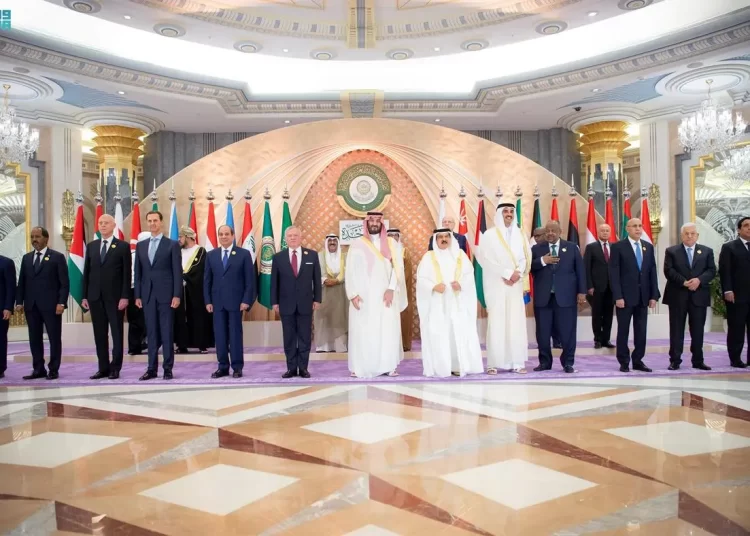On Friday, May 19th, the 32nd annual Arab League Summit took place in Jeddah, Saudi Arabia, marking notable departure from previous gatherings with the attendance of Syrian President Bashar Assad after a 12-year absence and Ukrainian President Volodymyr Zelensky as a guest speaker.
In his address, President Assad expressed hope that the summit would herald a new era of solidarity among Arab nations, fostering peace, development, and prosperity in the region in lieu of war and destruction. He called upon Arab states to seize the opportunity to shape their destinies, free from foreign interference, and cautioned against the perils of “Ottoman expansionist thinking” influenced by the Muslim Brotherhood.
The summit’s final statement saw Arab countries officially voicing their support for the Syrian government and President Assad personally, emphasizing the need for unity among Arab nations in backing Damascus to restore stability, end terrorism, and facilitate the withdrawal of unauthorized foreign forces from the country.
Mohammed bin Salman, the Crown Prince of Saudi Arabia, served as the summit’s host and expressed hope that Syria’s return to the Arab League would help resolve the country’s crisis.
The final statement of the Jeddah meeting emphasized the importance of joint cooperation between Arab nations, with Saudi Arabia expressing its willingness to engage with the European Union to find real solutions to the Syrian crisis. This highlights the broader implications of regional cooperation as Arab nations seek to address both internal and external challenges.
Ukrainian President Zelensky’s presence at the summit represents another layer of complexity in the regional dynamics. While his speech did not elicit any commitment from the Arab League or its members, it underlines the increasing interconnectedness of global politics and the need for Arab nations to engage with a diverse array of international actors. Simultaneously, Russian President Vladimir Putin’s message to the meeting emphasized the ongoing cooperation between Moscow and Arab countries based on common interests.
Despite the positive steps towards unity and cooperation, the notable absences of five Arab leaders, including president of the United Arab Emirates, Mohammed bin Zayed, underscore the lingering tensions within the region. The growing discord between Mohammed bin Zayed and Mohammed bin Salman, primarily centered around the issue of Yemen, highlights the potential hurdles that Arab nations may face in their pursuit of unity and cooperation.
In conclusion, the 32nd annual meeting of Arab heads of state illustrated the importance of unity and cooperation among Arab nations in an increasingly complex global landscape. The return of President Assad to the Arab League, and the continued emphasis on regional cooperation all signal a shift in regional dynamics. However, the ongoing tensions between key leaders remind us that the road to lasting peace and stability in the Arab world remains fraught with challenges.
As the Middle East continues to grapple with internal and external pressures, the need for unity and cooperation among Arab nations becomes ever more critical for the region’s future prosperity and security.






